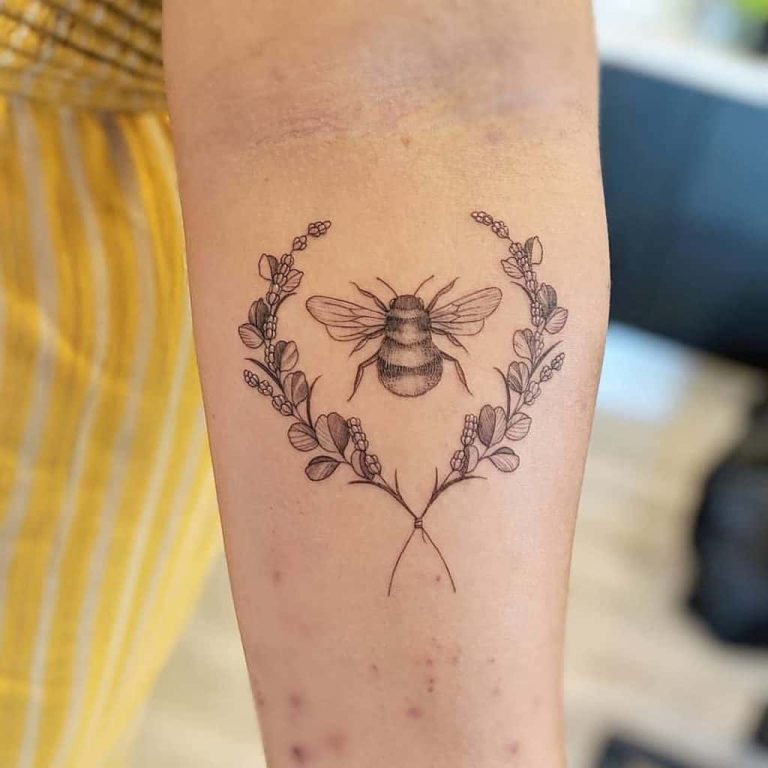There is no definitive answer to this question as it depends on a variety of factors, such as the age of the tattoo, the ink used, the depth of the tattoo, and the location on the body. However, generally speaking, older tattoos are often easier to remove than newer ones. This is because the ink in older tattoos has had time to fade and break down, making it less resistant to removal treatments.
Are Newer Or Older Tattoos Easier To Remove?
There’s no easy answer when it comes to whether or not older tattoos are easier to remove. It really depends on a number of factors, including the type of ink used, the depth of the tattoo, and your skin’s individual response to tattoo removal treatments. That said, older tattoos tend to be less vibrant and may fade over time, making them potentially easier to remove than newer ones.
If you’re considering tattoo removal, be sure to consult with a qualified professional who can help you determine what’s best for your individual situation.
Laser Tattoo Removal
Laser tattoo removal is a popular choice for those who want to get rid of an unwanted tattoo. The procedure uses laser energy to break up the ink pigment in the tattoo, which is then absorbed by the body.
There are a few things to consider before getting laser tattoo removal, such as the type of laser used, the size and location of the tattoo, and your skin tone.
The treatment can be expensive and may require multiple sessions to see results. There are also risks involved, such as infection and scarring.
If you’re considering laser tattoo removal, be sure to consult with a qualified dermatologist or other medical professional to get all the facts first.

Credit: www.naamastudios.com
Are New Tattoos Easier to Remove Than Old Ones?
The answer to this question largely depends on the tattoo removal method being used. Generally speaking, newer tattoos are easier to remove than older ones. This is because the ink in newer tattoos is usually less embedded in the skin than in older tattoos.
Additionally, new tattoos tend to be smaller and have fewer colors than older tattoos, which also makes them easier to remove.
That said, there are some exceptions to this rule. For example, if a new tattoo is done using poor-quality ink or if it is not properly cared for after it is done, then it may be more difficult to remove than an older tattoo that was done with better quality ink and/or better care.
Additionally, some removal methods work better on certain types of tattoos than others. So even though a newer tattoo may be easier to remove in general, there may still be some situations where an older tattoo would be easier to remove.
If you’re considering getting a tattoo removed, it’s important to consult with a qualified professional who can help you determine which removal method would be best for your specific situation.
How Does Age of Tattoo Affect Removal?
There are a few things that affect how easy it is to remove a tattoo, and age is one of them. Older tattoos are usually easier to remove because the ink has had time to spread out and diffuse throughout the skin. This makes it less concentrated, and therefore less difficult to break down with laser treatment.
Newer tattoos, on the other hand, tend to be more concentrated and thus require more treatments to remove. Age can also affect the quality of the tattoo itself—older tattoos may fade or become blurry over time, making them easier to remove than newer, sharper ones.
Which Tattoos are Easiest to Remove?
There is no definitive answer when it comes to the easiest tattoos to remove. This is because there are a number of factors that can influence how easy or difficult it is to remove a tattoo. These include the size, location and colour of the tattoo, as well as the type of ink used.
That being said, small tattoos tend to be easier to remove than larger ones. This is because there is less ink to break down and remove from the skin. Tattoos located on areas of the body with thinner skin, such as the wrist or ankle, are also generally easier to treat than those on thicker skinned areas like the back or chest.
Colour can also play a role in how easy a tattoo is to remove. Black ink tends to be the easiest to treat, while lighter colours like green or yellow may require more sessions. Tattoos that contain multiple colours may be more difficult to treat than those with just one shade.
The type of ink used in a tattoo can also affect how easy it is to remove. Professional tattoos usually use inks that are designed to be long-lasting and resistant to fading. However, these inks can be more challenging to break down during treatment.
What Makes a Tattoo Harder to Remove?
When it comes to tattoo removal, there are a few factors that can make the process more difficult. The first is the location of the tattoo. Tattoos on the hands, feet, and face are generally more difficult to remove than those on other parts of the body because the skin in these areas is thinner and more delicate.
This means that the lasers used for tattoo removal have a higher chance of causing burns or scarring.
Another factor that can make tattoo removal more difficult is the ink itself. Some inks are harder to break down than others, which means they’ll be more resistant to laser treatment.
Black ink is usually the easiest to remove, while green and blue inks can be more challenging. Finally, certain colors (like white) are very difficult to remove completely and may require multiple treatments.
Conclusion
There are a lot of factors that go into how easy it is to remove a tattoo, and age is definitely one of them. Older tattoos are generally easier to remove because the ink has had time to break down and spread out through the skin. This makes it less concentrated, which means that the laser can more easily target and break up the ink.
Age isn’t the only factor that determines how easy a tattoo is to remove, though. The location of the tattoo, the type of ink used, and your skin type can all play a role. If you’re considering getting a tattoo removed, be sure to consult with a qualified professional who can help you understand your options and what to expect.




